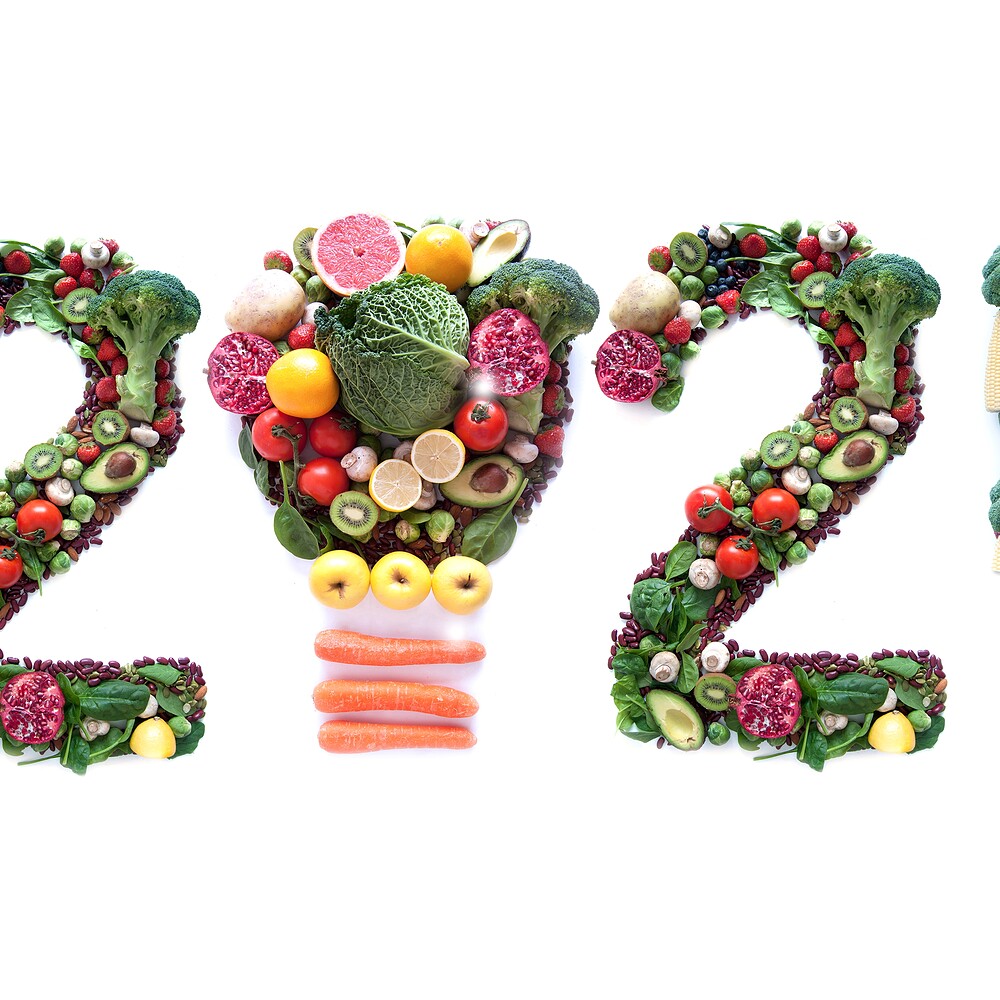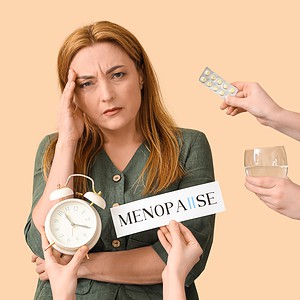January is here and health and wellness are the words on everyone’s lips.
Sherlock actor, Martin Freeman, is returning to meat for his health, while actor Russell Brand and singer Lizzo are giving up on veganism.
Celebrities might be shaking up their diets but what else can we expect to see in 2025?
The rise of AI in personalised nutrition, pushback on ultra processed foods, the shift towards more local produce, and the drive to transform the healthcare landscape by integrating more nutritional therapists into the NHS.
Phew, it’s all happening.
This year certainly promises transformative shifts in how we eat and think about food.
Experts from the nutritional world share their personal insights on current trends and discover what 2025 holds.
Embracing meat
Heather Rosa, Dean, Institute for Optimum Nutrition, on some of the key topics nutritional therapists and the public should be focusing on in 2025.
This year, I see a shift in the world of nutrition. More celebrities, like Russell Brand, are giving up veganism.
Veganuary might be on its way out, as it’s not the best time to start a diet that can be nutrient deficient, especially lacking vitamin D. Supermarkets are reducing plant-based products, and fake meat companies are struggling.
We’re seeing growing public interest in low carb, keto and carnivore diets, along with a focus on local produce. People are embracing meat again, though we still hear “eat less but better quality.”
There’s a lack of understanding about the environmental impact of animal farming. The internet is fuelling backlash against big food companies disrupting the food chain, like Arla and Bovaer. There are calls to review UK dietary guidelines, especially regarding fats and maltodextrin being disguised as sugar. Public awareness is rising about the health issues of industrial seed oils and the pushback against ultra-processed foods is increasing. Sadly, food poverty is worsening.
As nutritional therapists, we educate clients and the public on diet changes and food quality, from farm to fork. We continue lobbying for good quality food and work increasingly alongside GPs and healthcare professionals.
Artificial intelligence (AI) on the rise
Sam Feltham is Director of the Public Health Collaboration, a charity with ambitions to help as many people as possible to obtain and maintain a healthy lifestyle.
This year, we’ll witness a significant surge in personalised nutrition powered by AI. Public health efforts will increasingly focus on prevention, though the debate about its true meaning will persist.
My hope is that AI will empower more people to make healthier choices, emphasising lifestyle changes over pharmaceutical interventions. With advancements in AI, we can tailor nutrition advice to individual needs like never before, making health more accessible and personal. Imagine a world where your diet is perfectly aligned with your body’s requirements.
More action on childhood nutrition
Dr Rana Conway, of the UCL Institute of Epidemiology & Health Care, led a study which found that toddlers in the UK obtain half of their calories from ultra processed foods (UPFs). Her stark findings highlight the need for current policies to change to encourage manufacturers to provide honest labelling.
UPFs are not going anywhere unfortunately. Our study found that toddlers in the UK obtain nearly half (47%) of their calories from ultra-processed foods (UPFs), and this rises to 59% by the age of seven.
We need more honest labelling on food products to make it easier for parents to identify and interpret. It can be a confusing field to navigate for parents. There will be constant questions like: “should I buy wholemeal bread, is it bad for me?
There are concerns that we stigmatise UPFs. For example, Weetabix, which contains added ingredients like malted barley extract, could be classified as a UPF but it’s high in fibre and whole grains so we must try not to demonise foods.
Eating natural food is the best way forward, it’s not a new message but rather than buying a ready meal, why not make your own pasta sauce, snack on nuts and fruits. Find food in its most natural state.
Expanding the reach of nutritional therapy
We are urging the Secretary of State for Health and Social Care, Wes Streeting, to extend the HCPC register and make nutrition and lifestyle practitioners the front line in preventing chronic diseases.
This could revolutionise the NHS workforce, focusing on prevention-led care, easing GP waitlists, and tackling chronic diseases head-on.
Our vision? See these skilled professionals in primary care, community settings, delivering life-changing nutritional interventions for conditions like cardiovascular disease, type 2 diabetes, IBS, cancer, dementia, and mental health issues. It will no doubt be an exciting year as we continue our drive to see more nutritional therapists collaborating with GPs.

The growing trend for berry and fruit powders
Julie Weston is an ION graduate, nutritional therapy practitioner, experienced facilitator, and lead nutritionist at Haskapa.
As we step into 2025, a noticeable trend is emerging in the field of nutrition: the increased use of berry and other fruit powders in nutritional recipes, client recommendations and wider health products.
This trend is not just a fleeting fad; it represents a significant shift in the way we approach health and longevity. The modern emphasis on optimising nutrition to live healthier for longer is driving this change, fuelled by a growing body of research into the benefits of antioxidant-rich foods such as flavonoid-rich berries.
With their high antioxidant content and impressive health benefits, fruit and berry powders, like Haskapa, are becoming a central component of modern nutrition. As research continues to unveil their potential, we can expect even greater innovation in how these powerful foods are used to support health and longevity. Embracing the nutritional power of berries is not just a trend but a significant step towards living a healthier, longer life.
Local produce and seasonal eating on the rise
Dr Camilla Stokholm is a GP with a special interest in gut health, and is backing Riverford’s Veg Pledge.
We’re seeing a strong focus on gut health and plant diversity with a big lean into new terms like ‘plant points’. Consumers are starting to move away from ultra-processed foods and are recognising the foundational role of wholefoods like fruits, vegetables, nuts, seeds and grains in supporting a healthy microbiome. Initiatives like Riverford’s 30-Day Veg Pledge reflect this shift by encouraging families to explore variety through accessible, seasonal produce.
There has definitely been a shift to displace animal products from the plate with more plants. Over the last year, beans have become especially popular as they should! This doesn’t mean everyone needs to become vegan or vegetarian but any addition of plants will boost the gut microbiome and people are recognising this. Seasonal eating, sustainable sourcing of local produce and plant diversity will continue to grow in importance. Campaigns like Riverford’s Veg Pledge will help normalise these habits across all age groups.
Enjoyed this article?
For articles and recipes subscribe to the Optimum Nutrition newsletter
Discover our courses in nutrition






